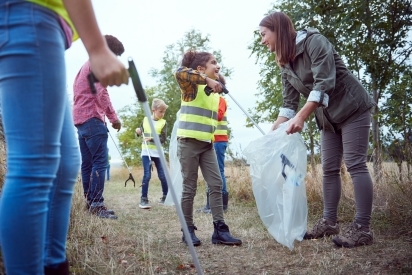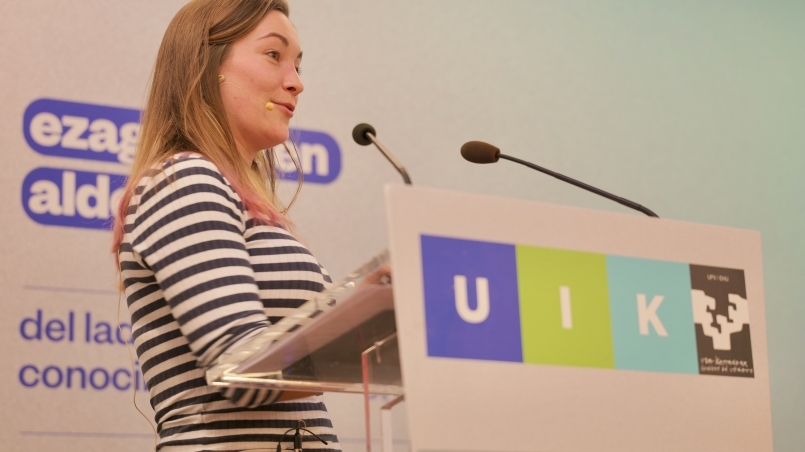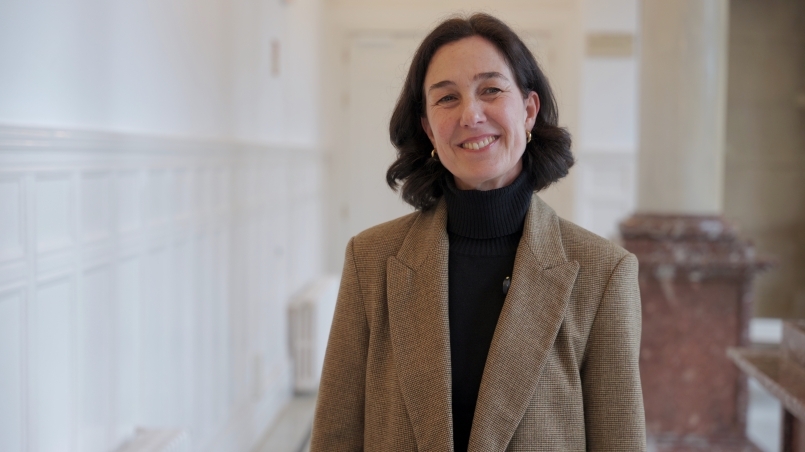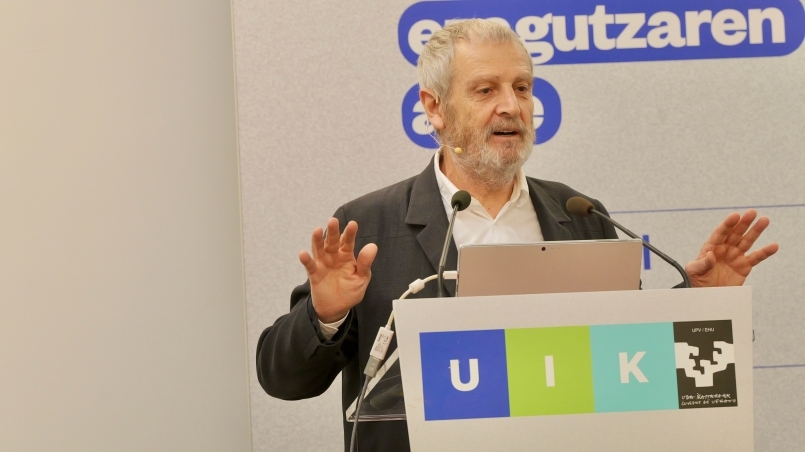The value of ecosocial education as a way to improve the environment and make progress as a community
"Educational institutions, even universities, have become havens of knowledge that do not live in convergence with the community in which they live. We have to go back to educating with the idea that we are part of society and that we depend on each other. Only by recovering the concept of the idea of living in community will we be able to face the challenges we encounter".

Miriam Campos Leirós, primary school teacher and coordinator of Teachers For Future Spain, took part in the open days programme of the Donostia Sustainability Forum, with a talk on ecosocial education, a method of education that links care for nature with community life, that analyses the interdependence of people with regard to the planet's finite resources and that emphasises the role of the pupils.
In 2014, together with other teachers, Miriam Campos launched the blog El guiño verde to promote educational initiatives related to the environment and knowledge of nature. In 2019 this collective became Teachers for future Spain, becoming part of an international network that joins forces and shares pedagogical resources.
One of the main keys to ecosocial education is the formation of active citizenship, which is important to face the challenges entailed by climate change, added Miriam Campos. The idea is that the activities that are planned in schools, such as actions in favour of the environment, equality and democracy, have an influence on society. The new education law that will come into force in September encourages full participation in social and civic life, a commitment to sustainability and to ethical problem solving. The aim, said Miriam Campos, is to promote a more sustainable lifestyle.
If facing challenges such as climate change requires social transformation, it should start at school. Miriam Campos presented specific actions that are being developed in schools, such as zero waste breaks, in which students are invited to bring food and drinks in reusable containers, making them aware of the great environmental problem of waste management. It is an exercise which, as she stressed, can be developed in different subjects, from natural sciences to language. There are other projects that include encouraging school routes, organising educational outings to measure the time it takes to walk to school, and studying the carbon footprint of usual commodity products.
Miriam Campos stressed the importance of the social component of these actions: Miriam Campos stressed the importance of the social component of these actions: to get boys and girls to participate actively in civic life and in processes of social participation, and to spread the value of these actions for the common good, opposite to the prevailing individualism.
She also stressed that children see themselves as great communicators. "When you inform them, they feel they are listened to and can participate, they feel they are the protagonists of change and they pass it on in their homes. There is a lot of feedback from teachers and families who say that children re-educate them about bad habits", he explained. This way of understanding education is therefore based on the philosophy that social participation matters, and that it begins to be learned in childhood.
The Galician teacher explained that it is important that the concepts of eco-social education are present in the school curriculum, "and not only environmental education, but all the topics that appear as society evolves, issues such as gender diversity, which should be included in the curriculum of all schools".
Thinking about the future, she would like to see a return to social kindness, the concept of the common good, "for the word community to have meaning in itself and for the human component to be recovered, I want to think that we are at a turning point and that we are going to evolve better, accepting different points of view and seeing disagreement as an opportunity for enrichment".


